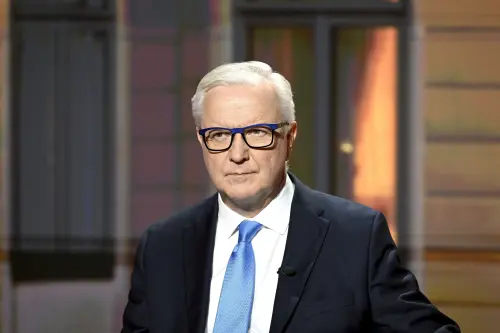Euro Zone economic growth is currently being affected by the Trump administration's trade war, as stated by European Central Bank policymaker Olli Rehn. Rehn suggests that an anticipated increase in defense spending could help sustain growth in the region.
The Euro Zone economy has been relatively stagnant for the past two years, with concerns escalating over the impact of a potential trade war with the U.S. hindering corporate investment and consumer confidence.
Furthermore, the Trump administration's diminished support for Ukraine poses an additional challenge for the European bloc, which has committed to funding a significant portion of Ukraine's defense efforts against Russia.
Rehn noted in an MNI webinar that although the security situation in Europe remains concerning, the projected rise in defense expenditures is expected to bolster GDP growth in the medium term, offering a potential economic uplift amid existing uncertainties stemming from U.S. trade policies.
While acknowledging the adverse effects of U.S. tariffs and heightened uncertainty on the euro area's economic growth outlook in the short and medium terms, Rehn emphasized that the ECB's previous rate cuts provide breathing space for households and businesses.
Though Rehn refrained from committing to further rate cuts due to the uncertain economic landscape, he hinted at the possibility of future adjustments by pointing out that inflation is stabilizing around the ECB's 2% target and following projected trends.
Rehn referred to the ECB's internal forecasts, indicating the likelihood of several additional rate adjustments this year, contingent upon economic and inflation movements tracking the baseline scenario.
